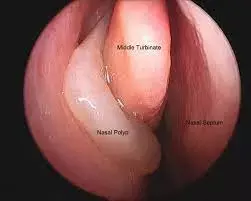- Home
- Medical news & Guidelines
- Anesthesiology
- Cardiology and CTVS
- Critical Care
- Dentistry
- Dermatology
- Diabetes and Endocrinology
- ENT
- Gastroenterology
- Medicine
- Nephrology
- Neurology
- Obstretics-Gynaecology
- Oncology
- Ophthalmology
- Orthopaedics
- Pediatrics-Neonatology
- Psychiatry
- Pulmonology
- Radiology
- Surgery
- Urology
- Laboratory Medicine
- Diet
- Nursing
- Paramedical
- Physiotherapy
- Health news
- Fact Check
- Bone Health Fact Check
- Brain Health Fact Check
- Cancer Related Fact Check
- Child Care Fact Check
- Dental and oral health fact check
- Diabetes and metabolic health fact check
- Diet and Nutrition Fact Check
- Eye and ENT Care Fact Check
- Fitness fact check
- Gut health fact check
- Heart health fact check
- Kidney health fact check
- Medical education fact check
- Men's health fact check
- Respiratory fact check
- Skin and hair care fact check
- Vaccine and Immunization fact check
- Women's health fact check
- AYUSH
- State News
- Andaman and Nicobar Islands
- Andhra Pradesh
- Arunachal Pradesh
- Assam
- Bihar
- Chandigarh
- Chattisgarh
- Dadra and Nagar Haveli
- Daman and Diu
- Delhi
- Goa
- Gujarat
- Haryana
- Himachal Pradesh
- Jammu & Kashmir
- Jharkhand
- Karnataka
- Kerala
- Ladakh
- Lakshadweep
- Madhya Pradesh
- Maharashtra
- Manipur
- Meghalaya
- Mizoram
- Nagaland
- Odisha
- Puducherry
- Punjab
- Rajasthan
- Sikkim
- Tamil Nadu
- Telangana
- Tripura
- Uttar Pradesh
- Uttrakhand
- West Bengal
- Medical Education
- Industry
Dupilumab improves sleep, function in people with chronic rhinosinusitis with nasal polyps: study

Dupilumab improves sleep, and function in people with chronic rhinosinusitis with nasal polyps according to a recent study published in The Journal of Allergy and Clinical Immunology: In Practice
Patients with chronic rhinosinusitis with nasal polyps experienced improved sleep and functioning after 52 weeks of treatment with dupilumab, according to research published in The Journal of Allergy and Clinical Immunology: In Practice.
These improvements in turn improved health-related quality of life, William Busse, MD, honorary associate and fellow in the department of medicine, division of allergy, pulmonary and critical care at University of Wisconsin School of Medicine and Public Health, and colleagues wrote.
The randomized, placebo-controlled phase 3 SINUS-24 and SINUS-52 studies showed an association between treatment with dupilumab (Dupixent; Sanofi, Regeneron), a monoclonal antibody that inhibits IL-4 and IL-13 signaling, and a significant reduction in nasal polyp score and nasal congestion compared with placebo.
The researchers conducted a post-hoc analysis of the 22-item Sino-Nasal Outcome Test sleep and function domain scores for SINUS-24 and SINUS-52 study participants who received 300 mg doses of subcutaneous dupilumab for their CRSwNP.
SNOT-22 asked participants about their difficulty in falling asleep, waking up at night, lack of a good night's sleep and waking up tired, as well as about fatigue, reduced productivity and reduced concentration. These factors were scored on scales from no problem, at a score of 0, to problems as bad as they could be, at a score of 5.
Participants taking dupilumab saw greater improvements in average SNOT-22 sleep domain scores compared with those taking placebo at week 24 in the SINUS-24 and at week 52 in SINUS-52 with differences observable starting at week 8.
Similarly, those taking dupilumab experienced greater changes in sleep domain score from baseline compared with placebo at week 24 and week 52.
Those assigned dupilumab further saw greater improvements in their function domain scores than those on placebo at week 24 with observable differences at week 8 (P < .0001).
Regardless of nasal polyp scores, participants assigned dupilumab saw improvements in all their sleep and function scores at weeks 24 and 52 compared with those taking placebo.
Participants with asthma saw numerically greater improvements in function compared with those without asthma, and participants with prior nasal polyp surgery also saw numerically greater improvements compared with those who had not had such surgery, both at week 52.
Noting how these positive effects occurred regardless of comorbid asthma, NSAID-exacerbated respiratory disease, allergic rhinitis, prior surgery or systemic corticosteroid use, the researchers said their results indicate that dupilumab has a broader effect on health-related quality of life beyond symptomatic relief from CRSwNP.
The researchers cautioned that they were not able to evaluate how these changes might impact overall improvements in general health and function and that they could not consider how obstructive sleep apnea may have contributed to their results. However, the researchers hypothesized that the reductions in daily CRSwNP symptoms that dupilumab produced — such as with congestion — may have been responsible for improvements in sleep, which then led to improvements in function.
Reference:
Impact of dupilumab on SNOT-22 sleep and function scores in CRSwNP by William Busse, et al. published in The Journal of Allergy and Clinical Immunology: In Practice
https://doi.org/10.1016/j.jaip.2022.05.013.
Dr. Shravani Dali has completed her BDS from Pravara institute of medical sciences, loni. Following which she extensively worked in the healthcare sector for 2+ years. She has been actively involved in writing blogs in field of health and wellness. Currently she is pursuing her Masters of public health-health administration from Tata institute of social sciences. She can be contacted at editorial@medicaldialogues.in.
Dr Kamal Kant Kohli-MBBS, DTCD- a chest specialist with more than 30 years of practice and a flair for writing clinical articles, Dr Kamal Kant Kohli joined Medical Dialogues as a Chief Editor of Medical News. Besides writing articles, as an editor, he proofreads and verifies all the medical content published on Medical Dialogues including those coming from journals, studies,medical conferences,guidelines etc. Email: drkohli@medicaldialogues.in. Contact no. 011-43720751


